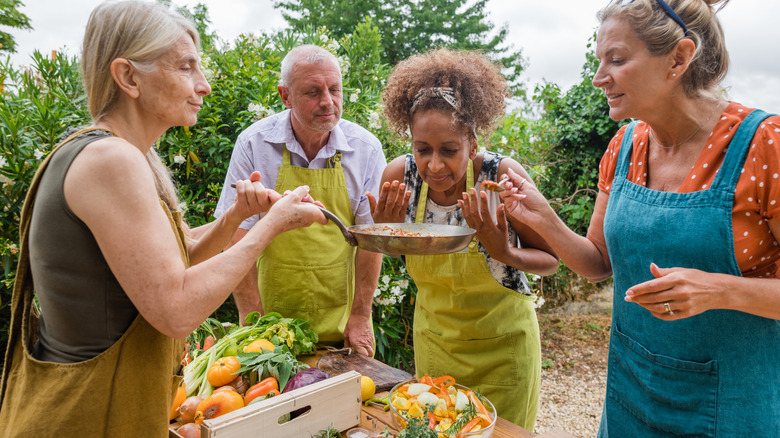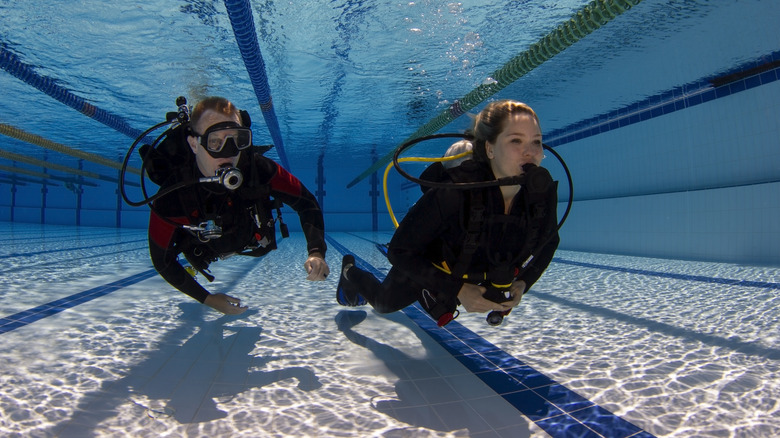What It Means To Go On A 'Skillcation' And How This Trend Can Change The Way You Travel
Can you picture yourself cooking jerk chicken from scratch? What if you learned this culinary art from professional chefs in Jamaica? You could use local ingredients and a commercial kitchen, all in the country where this spicy specialty was invented. While you're at it, why not learn to make Sopa de lima (lime soup) in the Yucatán, or handmade pasta in Florence? Of course, classes aren't limited to food: enroll in a Spanish immersion workshop in Guatemala, a sailing program in Seattle, or a wildlife photography workshop in Botswana. Just about anything you can imagine learning — there's a class for it somewhere in the world, and courses are easier to find than ever.
A name for this concept is "skillcation," and more and more curious folks are traveling the world to pick up a new skill or improve an old one. Many of us are familiar with yoga retreats and scuba schools, and pupils may fly across continents in pursuit of training and certifications. We may dream of perfecting our warrior poses on a Costa Rican beach instead of in a run-of-the-mill Ashtanga studio, and most of us would prefer diving in the clear waters of the Caribbean or any of the other best scuba diving destinations in the world. Yet the explosion of apps and websites dedicated to specialized classes has radically expanded the list of possible subjects. You can study pottery in Bali, flamenco in Spain, falconry in Ireland, calligraphy in China, golf techniques in Portugal, and free diving in Thailand. The options can seem endless.
The benefits of skillcations and how to sign up
Travelers take vacations for any number of reasons, and there's nothing wrong with relaxation and shopping. Yet a skillcation — or at least elements of a skillcation — can add a lot of additional meaning to your journey. No matter the length or rigor of your class, having a scheduled time and place to be can help structure your vacation. Classes can be social by nature, gathering people with similar temperaments and interests in a single place. Tours can be educational, of course — in fact, Rick Steves' advice for fully appreciating Europe is to book a walking tour – but many tours are passive experiences, similar to lectures on foot or bus. Yet in classes, students learn and practice skills in a hands-on environment. In the end, you may walk away with more than just knowledge — perhaps you'll have an original work of art or a delicious new recipe.
Not surprisingly, the two most important factors for finding classes are time and money. How much of your vacation do you want to dedicate to learning a new skill? If there are multiple sessions and you have to miss one due to scheduling, can you still reach your proficiency goals? Will you have time to reach the classroom or practice site from wherever you're staying? And what is your budget? You'll probably have to pay for the class itself, but do you have to purchase materials or special equipment as well? Will the instructor expect a gratuity, as do many tour guides?
Classes are generally easy to find online, along with prices and schedules. And remember that plenty of activities aside from formal courses can help you hone a skill. For example, you can learn a lot about trekking by joining a festival-style backpacking excursion.

